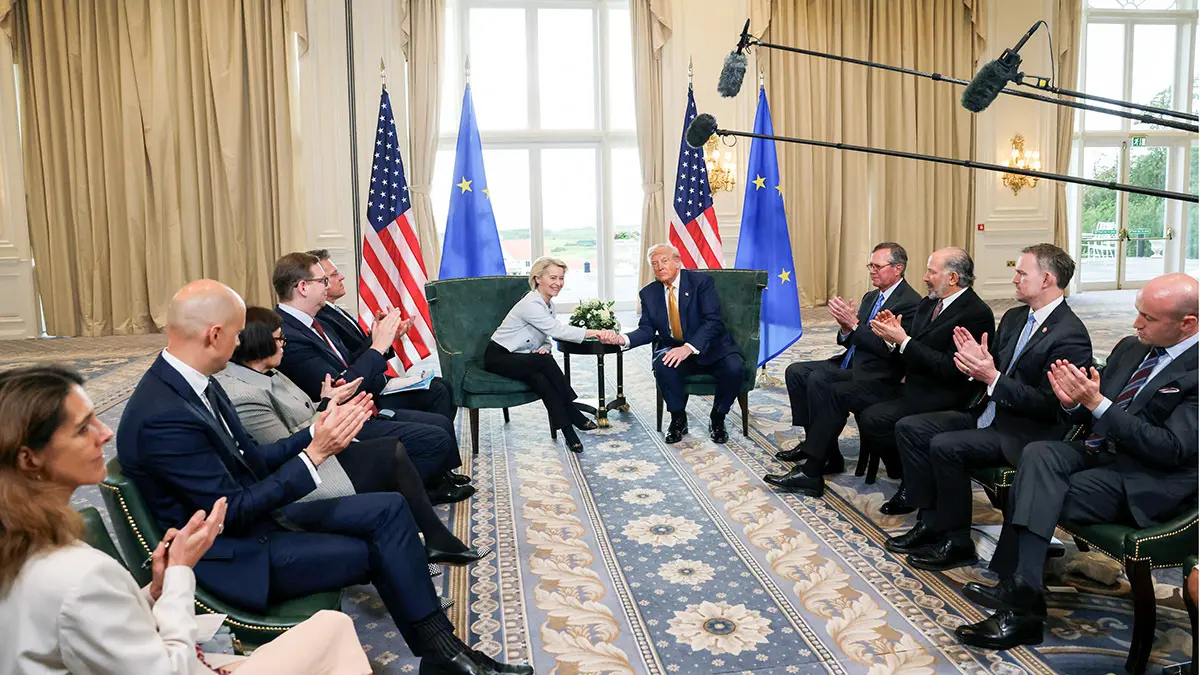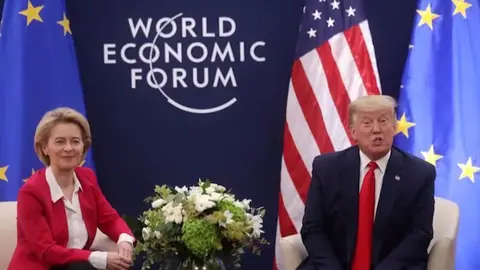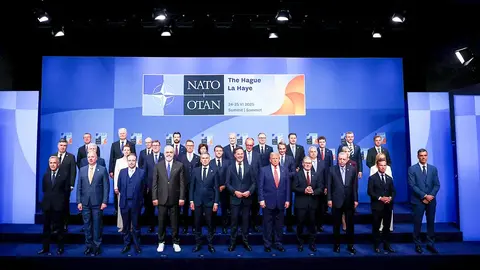The emperor put the European colony in its place

The top US leader ended his standoff with Ursula Von der Leyen with a landslide victory, to use a football analogy, or a technical knockout, if we compare it to boxing.
As is to be expected, within the Sanhedrin of the Twenty-Seven, and despite the holiday stampede, discrepancies have emerged, especially when, within the general European defeat, some have emerged from the battle more damaged than others.
In short, the trade agreement between the United States and the European Union is a complete capitulation by the latter: Europeans have committed to completely eliminating tariffs on US products; to investing €600 billion in the United States; and to purchasing US energy, mainly gas and oil, worth another €750 billion. In exchange for these impositions by the American ‘emperor’, European products will be subject to a general tariff of 15%, while maintaining the existing 50% penalty on steel and aluminium.
As Donald Trump had threatened that the general tariff would be 30% from 1 August, its reduction to 15% has even been celebrated as a triumph in some European capitals, without stopping to analyse Trump's long-standing habit of always negotiating from a maximum position in order to ultimately achieve what he really wanted after a mock haggling session. In short, Trump's victory is all the more resounding given that until now the average tariff paid on European products was actually 1.45%.
Sources within the European Commission argue that it did not have many other tools to negotiate with Trump, which is probably true, both because of the EU's general inferiority to the American giant and because of internal European disputes, especially those between southern European countries and industries and those in the north. In fact, if the Germans have once again emerged as the least affected in terms of their automotive industry, Spain and its agri-food production could be among the hardest hit, as the 15% tariff increase could wipe out the viability of many companies that derive the bulk of their turnover from the American market, and above all their hypothetical future prospects.
As gestures matter a great deal in international relations, it is surprising that the announcement of this capitulation agreement took place in the ballroom of the clubhouse of one of Trump's golf courses in Scotland, his mother's homeland. The ‘emperor’ has thus imposed his conditions at home, as if to emphasise his mark and his dominance over a Europe which, if he does not openly despise, he certainly considers to be very inferior.
They also justify within the European institutions that ‘the concessions made have saved Europe's access to the US market’. Without categorically denying this assertion, it is clear that the price to pay for such access is monumental, practically equivalent to the taxes that the imperial powers of the 19th century imposed on their colonies at will.
Going beyond the immediate consequences of this capitulation agreement, it seems clear that Europe's subordination to the United States is, if anything, even greater than before. The clause that generically stipulates that Europe will purchase ‘a large amount of military equipment’ from US factories strips Europeans who aspired to create a powerful continental industry alternative to the US of much of their autonomy.
It is clear that Trump had no plans to return to the US presidency to play nice with his former friends and allies. His gestures and disparaging remarks, such as ‘we will provide Patriot missiles to Ukraine to defend itself against Putin, but the Europeans will pay for them’, encapsulate a whole political philosophy and, above all, the way in which the White House conceives its relationship with the other side of the Atlantic.
At the end of this analysis, it is tempting to urge Europe once again to act together and assert its capabilities. But, realistically, reason tells us that Europe will not recover easily from this defeat. What is more, it is unfortunately to be expected that calls for every man for himself will multiply, leading to irreversible fragmentation rather than closing ranks, gritting our teeth and seeking the common European interest.



